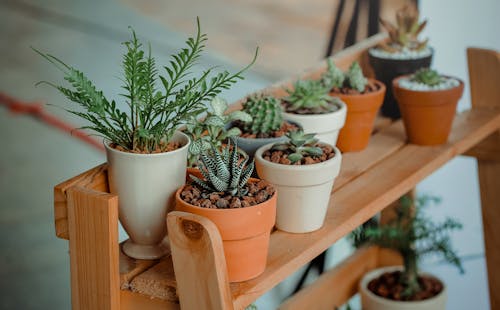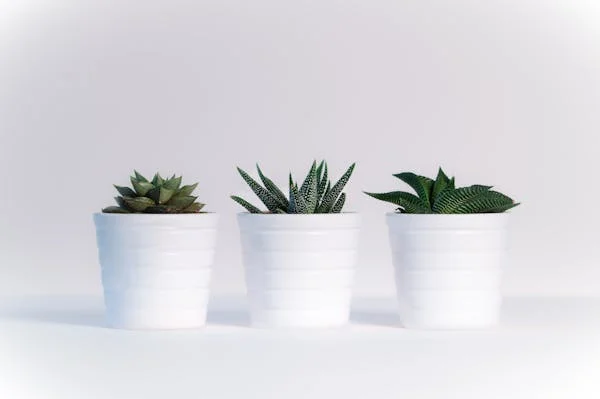Houseplants are more than just decorative additions to your home. Over the years, they’ve become a popular trend in interior design, but their appeal goes beyond their aesthetic value. From improving air quality to boosting mood and reducing stress, houseplants offer a range of benefits for both your health and home environment. If you’re new to plant care or looking to expand your indoor garden, here’s a look at the many advantages of having houseplants, along with some simple tips for keeping them healthy.
1. Improve Air Quality
One of the most well-known benefits of houseplants is their ability to improve indoor air quality. Plants naturally absorb carbon dioxide and release oxygen, making them an excellent addition to any room. Certain houseplants also help purify the air by filtering out toxins like benzene, formaldehyde, and ammonia, which are commonly found in household products and furniture.
Plants such as peace lilies, snake plants, and spider plants are particularly effective at improving air quality. They work by absorbing harmful chemicals through their leaves and roots, providing a cleaner and fresher environment. This can lead to better respiratory health and an overall more pleasant atmosphere in your home.

2. Boost Mood and Reduce Stress
Spending time around houseplants can have a positive impact on your mental well-being. Research has shown that being around greenery can help reduce stress levels and promote a sense of calm. Just looking at plants or caring for them can lower cortisol (the stress hormone) levels, making you feel more relaxed.
Additionally, plants can improve your mood by providing a natural, living element to your space. The act of tending to your plants, whether it’s watering them or rearranging them, can also provide a sense of accomplishment and connection to nature. Many people report feeling happier and more content when surrounded by plants, making them a simple yet effective tool for emotional well-being.
3. Enhance Productivity and Creativity
If you work from home or spend a lot of time in one room, adding houseplants can help increase productivity and creativity. Studies have shown that people who work in environments with plants experience improved concentration, memory retention, and problem-solving skills. The calming presence of greenery allows for better focus, reducing mental fatigue and boosting cognitive function.
Furthermore, plants can stimulate creativity. The natural textures and colors they add to a space can inspire new ideas and encourage a more vibrant, energetic atmosphere. If you’re looking for a way to enhance your work or creative space, a few well-placed plants might be just what you need.
4. Increase Humidity
Houseplants are natural humidifiers. Through a process called transpiration, plants release water vapor into the air, which can help increase humidity in dry environments. This is especially beneficial during colder months when indoor air tends to be drier due to heating systems. The added moisture can help prevent dry skin, irritated sinuses, and respiratory issues, making your living space more comfortable.
Some plants, such as ferns, ivy, and peace lilies, are particularly effective at adding humidity to the air. If you live in a dry climate or simply want to enhance the comfort of your indoor environment, incorporating these plants into your home can make a noticeable difference.

5. Promote Better Sleep
The calming effects of houseplants can also extend to your sleep quality. Certain plants, like lavender and jasmine, are known for their relaxing scents, which can help create a peaceful atmosphere conducive to sleep. These plants release fragrant oils that have been shown to reduce anxiety and promote relaxation.
Additionally, some studies suggest that the presence of plants in the bedroom can improve sleep by increasing oxygen levels and reducing carbon dioxide at night. This can contribute to deeper, more restorative rest. Just be mindful not to overcrowd your space with too many plants, as it could create a cluttered, overwhelming environment instead of a calming one.
6. Low-Maintenance Options for Beginners
If you’re new to plant care, it’s important to start with houseplants that are easy to maintain. Some plants are particularly forgiving and can thrive with minimal attention, making them ideal for beginners. Consider starting with low-maintenance plants like succulents, snake plants, or pothos. These plants are resilient and can tolerate a range of lighting conditions and watering schedules.
Succulents, for example, require very little water and prefer bright, indirect light. Snake plants are known for their ability to survive in low light and can go weeks without needing water. Pothos is another great option for beginners because it thrives in a variety of conditions and only needs occasional watering.
7. Plant Care Tips for Success
While houseplants are relatively easy to care for, they do require some attention to thrive. Here are a few key tips to ensure your plants stay healthy and happy:
Watering: Overwatering is one of the most common mistakes made by plant owners. It’s important to allow the soil to dry out between waterings, as many plants are susceptible to root rot if they sit in waterlogged soil. Always check the moisture level of the soil before watering and ensure your pots have drainage holes.
Lighting: Different plants have different light requirements, so be sure to place them in locations where they’ll get the right amount of light. Most plants prefer bright, indirect light, but some, like succulents, need direct sunlight to thrive. If you’re unsure, research the specific needs of your plants to determine the best spot.
Fertilizing: Plants need nutrients to grow, and fertilizing helps replenish the soil. Use a balanced, water-soluble fertilizer to feed your plants during the growing season (usually spring and summer). Be careful not to over-fertilize, as this can damage the plants.
Pruning: Regular pruning helps keep your plants healthy and looking their best. Trim dead or yellowing leaves, and cut back any leggy growth to encourage new, bushy growth. Some plants, like spider plants, benefit from occasional division to promote healthy growth.
Houseplants offer a wide array of benefits, from improving air quality to reducing stress and boosting creativity. They can also add a touch of natural beauty and tranquility to any room. With a little attention and care, your indoor plants can thrive, creating a healthier, more pleasant environment in your home. Whether you’re a plant enthusiast or a beginner, the power of houseplants is undeniable—and with the right care, your living space can truly blossom.














